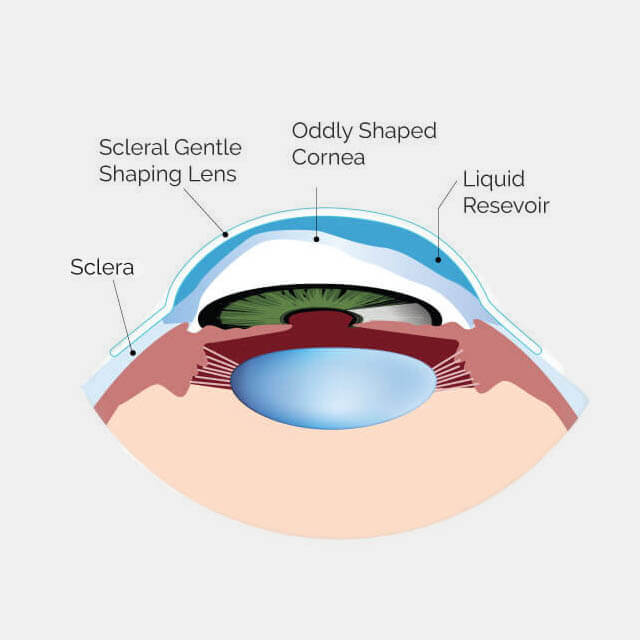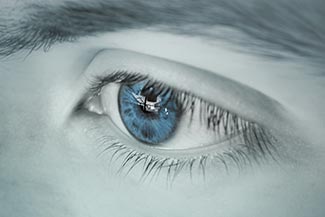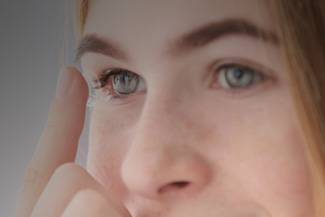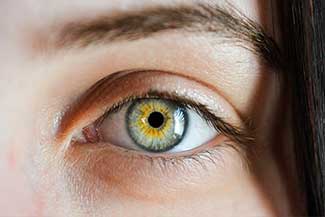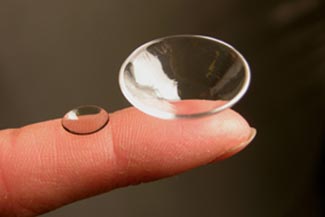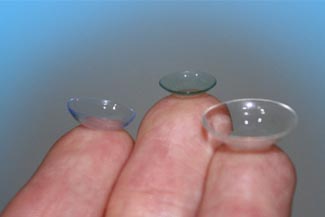-
Though scleral lenses are typically used to treat corneal irregularities and refractive errors, they are also an excellent solution for dry eye sufferers. These high-quality customized lenses offer long-term dry eye relief, exceptional comfort, and visual clarity.
-
There are 3 main types of astigmatism that can affect your vision. Read on to learn about each one, and discover why scleral lenses are a safe and effective corrective method for those with even high astigmatism.
-
Scleral lenses are rigid gas permeable contact lenses that are frequently given to individuals with keratoconus, irregularly shaped corneas, severe dry eye syndrome, corneal dystrophies and LASIK complications. Learn how to properly care for scleral lenses.
-
Scleral contact lenses are ideal for patients with mild to severe keratoconus. Here’s why scleral lenses can reduce the need for corneal surgery and, in certain cases, may even be more effective than surgery.
-
A corneal transplant, also known as keratoplasty, is a surgical procedure that replaces part of your cornea with corneal tissue from a donor. Following the surgery, many patients are fitted with scleral contact lenses, offering high levels of comfort and clarity to those with irregular or damaged corneas.
-
Keratoconus causes the cornea to thin and gradually bulge outward in a cone-like shape. There are many misconceptions surrounding this eye condition. Here are the facts.
-
Athletes need to have a sharp and stable vision to perform well on the field or court. Scleral lenses offer a host of benefits for athletes who have certain eye conditions or who find it challenging to wear regular contact lenses.
-
Ocular surface disease is a group of eye disorders that affect the eye’s delicate surface. While eye drops and other treatments may provide temporary relief, scleral lenses offer the long-lasting relief people with ocular surface disease yearn for.
-
Scleral lenses are a great solution for patients with corneal conditions like keratoconus, severe dry eye syndrome, and those who need vision correction after eye surgery, but almost a third say their lenses sometimes get foggy. Find out what may be causing the fog and how to prevent it.
-
Here’s why so many physicians trust us to provide their patients with first-rate care in scleral lens and specialty contact lens fittings.
-
Scleral lenses offer an excellent option for vision correction for people with irregular corneas, providing unparalleled comfort and improved eyesight. Learn more about these specialized lenses and how they've improved the vision and lives of these patients.
-
Improper care of scleral contact lenses can increase the risk of eye infections and corneal ulcers. Follow this hygiene regimen to minimize any such risk and ensure that your scleral lenses will be safe and comfortable to wear.
-
Healthy corneas are essential to our vision, but they can be damaged by injury or disease, so care needs to be taken. When damage does occur, we are here to treat it. Scleral lenses are among the treatments we provide.
-
The benefits associated with scleral lenses render them a satisfying choice for those with corneal irregularities desiring clear and comfortable vision. This page details information for patient referral, such as the doctor’s bio, case studies, research results, and more.
-
How much do scleral contacts cost, does vision or medical insurance cover the cost of scleral lenses, what is the process of a scleral lens fitting...
-
When it comes to your eyes, it's important to know with whom to set up an appointment. In this article, we explain the differences in eye care professionals.
-
Some people experience discomfort when wearing gas permeable lenses, and for those patients, scleral lenses are a much better alternative. Learn why that is.
-
The many benefits associated with scleral lenses render them a popular and satisfying choice for patients desiring a clear and comfortable vision.
-
Scleral lenses provide astigmatic patients with improved visual acuity and comfort while keeping eyes hydrated all day. Learn why and how it works.
-
Scleral lenses can be used for patients with keratoconus, for those requiring vision correction after eye surgery, and to treat many other eye conditions and disorders. Moreover, patients who struggle with prescription eyeglasses and contact lenses can now experience comfortable, superior vision by wearing scleral lenses.
-
These patients discuss the benefits they experienced after switching to scleral lenses.
-
Keratoconus describes a condition in which the corneal structure isn’t strong enough to maintain a healthy ball shape. As a result, the cornea bulges outward into more of a cone.
-
Eye complications following LASIK surgery, PRK, or RK can be remedied by wearing scleral lenses. They are the ideal option in providing clear and comfortable vision.
-
Scleral lenses are a great solution for those with Keratoconus, as they offer sharp vision and improved comfort.
-
People with dry eyes typically struggle with wearing traditional contact lenses. Scleral lenses, however, contain a liquid reservoir which provide eye moisture, thus providing patients with clear vision and comfort all day long.
-
Scleral contact lenses are an excellent choice for patients requiring vision correction following a corneal graft, thanks to the high level of comfort and hydration they provide.
-
Young patients with rapidly deteriorating keratoconus should consider corneal collagen cross-linking (CXL). This minimally invasive procedure halts keratoconus progression and can stabilize vision. Read on to learn more about CXL and the role of your optometrist in the treatment.
-
Read about the pros and cons of gas permeable lenses and learn how scleral lenses can benefit your vision and comfort levels.
-
Do you have trouble wearing contact lenses that they are painful or constantly uncomfortable? You may fall under the category of a hard to fit patient
-
Have you heard that there are Contact Lenses that anyone can wear? Scleral lenses are specialized custom contact lenses that make contact lens use possible for many people for the first time - and they have many advantages over normal contact lenses as well including, fit, comfort, and visual acuity.
-
Keep Up-To-Date with our Scleral Lens Blog!
-
Hybrid lenses are gas permeable lenses that include an outer skirt made of soft or silicone gel materials. These are great for those seeking to correct myopia (nearsightedness) or hyperopia (farsightedness), and are beneficial for specific visual impairments, such as keratoconus, astigmatism, or for those with a post-corneal transplant.
-
Corneal Dystrophies are a group of inherited eye disorders that affect the cornea and can lead to corneal irregularities, causing patients to experience blurred vision. Scleral lenses offer the perfect solution, as they vault over the cornea, creating an evenly rounded dome that provides clear vision.
-
Giant Papillary Conjunctivitis (GPC) is an inflammatory reaction that occurs when proteins are secreted in your tears. Learn what causes this condition and how scleral lenses can reduce your chances of developing GPC.
-
Sjogren's syndrome is an autoimmune disease that causes extreme dryness in many parts of the body, including the eyes. Scleral contact lenses provide much-needed relief by creating a reservoir of saline solution between the lens and the cornea that alleviate dryness and discomfort.
